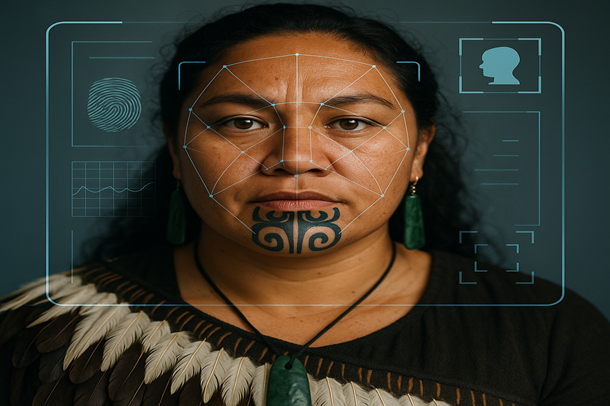The latest research by the Privacy Commission “Research on Privacy Concerns and Use of Personal Information March 2025” has a significant focus on Māori views which is welcomed. There is a concentration on Facial Recognition Technologies (FRT) reinforcing well established facts. The limited AI questions could have been more extensive, and should have included Algorithms and bias, with the same focus on Māori as the rest of the report. But overall, the report fairly reflects what other research states.
AI Feedback
- Public concern about privacy remains high, with particular unease around children’s online safety, social media data use, and AI decision-making. A slight decline in reported general concern may reflect question changes rather than real shifts.
- Across specific privacy issues, concern remains high, especially regarding children’s online privacy (67%), social media companies managing personal data (63%), and government or business use of AI to make decisions (62%).
- 83% of respondents concerned (27% very concerned), about government agencies or businesses using artificial intelligence to make decisions about them, using their personal information. 4% were not concerned at all. Māori were more likely to be concerned.
Facial Recognition Technologies
Concern about facial recognition technology declined, though Māori consistently showed higher concern—particularly over potential bias
(57% Māori vs 48% All), use in law enforcement (52% Māori vs 41% All, and retail settings (49% Māori vs 41% All).
Support was similar among Māori and the general population with around two-thirds supporting surveillance technology when used for crime prevention or security-related purposes use for reducing theft and enhancing safety.
Māori respondents consistently showed higher concern while the general population’s concerns declined, about facial recognition and data use by public institutions.
- Government organisations combining data* (59% Māori:49% All)
- Biases of facial recognition technology* (57% Māori:48% All )
- Law enforcement using facial recognition* (52% Māori:41% All)
- Use of facial recognition in retail stores* (49% Māori:41% All).
General Māori Privacy Findings
- Reports of personal privacy breaches have increased, particularly among Māori.
- Māori respondents were less supportive of formal Privacy audits.
- Māori showed higher levels of concern about individual privacy and protection of their personal information than the general population, with 53% expressing concern versus 47% of general population.
- Nearly half (both the general population and Māori) still say they have become more concerned about issues of individual privacy and personal information over the past few years, highlighting ongoing sensitivity.
- Māori were more likely to consider changing service providers due to poor privacy practices (55% Māori vs 43% general population.
- Strong support for increased control over personal data remains, with 82% of all respondents (and 86% of Māori) agreeing they want more say in how their data is collected and used.
- 79% of Māori see protecting personal information as a major life concern versus 66% general population.
- Māori were more likely (19%) to report experiencing a privacy breach, up 7% from 2022.
- Following a breach, Māori are more likely to contact the Citizens Advice Bureau and slightly less likely to contact the Privacy Commissioner or Police.
- Māori awareness of the Privacy Act is 51%, down 3% from the previous year.
Conclusion
Overall there research is consistent with other research and what is being said in many Māori communities that I interact with. Māori are more concerned with their privacy, inter generational mistrust of government, police and the legal system still appear to be relevant. The mistrust of Facial Recognition Technologies (FRT) still and I suspect will be dominant until such a time we have a New Zealand data set to train Facial Recognition systems to avoid bias to Māori, Polynesians and other communities.
There still remains no research about how Māori feel with iwi, marae, hapū entities and Māori providers usage of their data.





